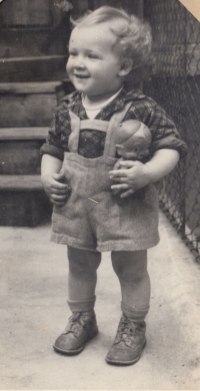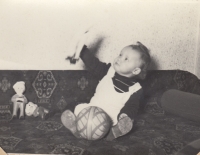The Iron Curtain was like a yard fence; after its fall, we brought Slavonice to life again.

Download image
Zdeněk Žampa was born on the 24th of December in 1956 in the Dačice hospital and he grew up in Slavonice. His parents had moved to the town right after the WWII had ended and the original [German-speaking] inhabitants were expelled. At the beginning of the 1960‘s, his father Antonín served as the chairman of the Local National Council. Zden… grew up surrounded by reminders of the war and the German past of he town but the defining element of his childhood was the immediate vicinity of the Iron Curtain and the Border Control. In 1968, at the age of 12, he witnessed the arrival of the occupation armies to Slavonice. When he studied at the Czech Technical University in Prague, he became friends with an aspiring actor and architect, David Vávra and owing to this friendship, he became a member of the Sklep theatre ensemble. He invited the ators to Slavonice in 1987 and the visit bore its fruits, the actors bought together a dilapidated house where the Besídka restaurant is located today. Zdeněk participated in a demonstration on the 21th of August in 1989. The police violently dissolved the anti-Communist protest, Zdeněk Žampa was detained in the Pankrác prison and awaited a trial. He participated in the events of the Velvet Revolution and in March 1990, he witnessed the opening of borders with Austria. The community around the Besídka restaurant helped to bring life not only to Slavonice but to an almost abandoned village of Maříž close to he Austrian border. Not only houses were renewed, so were the connection between people and across the Czech – Austrian border. As an active citizen, organiser and local politician, Zdeněk Žampa has been helping considerably the local social and civic life.

